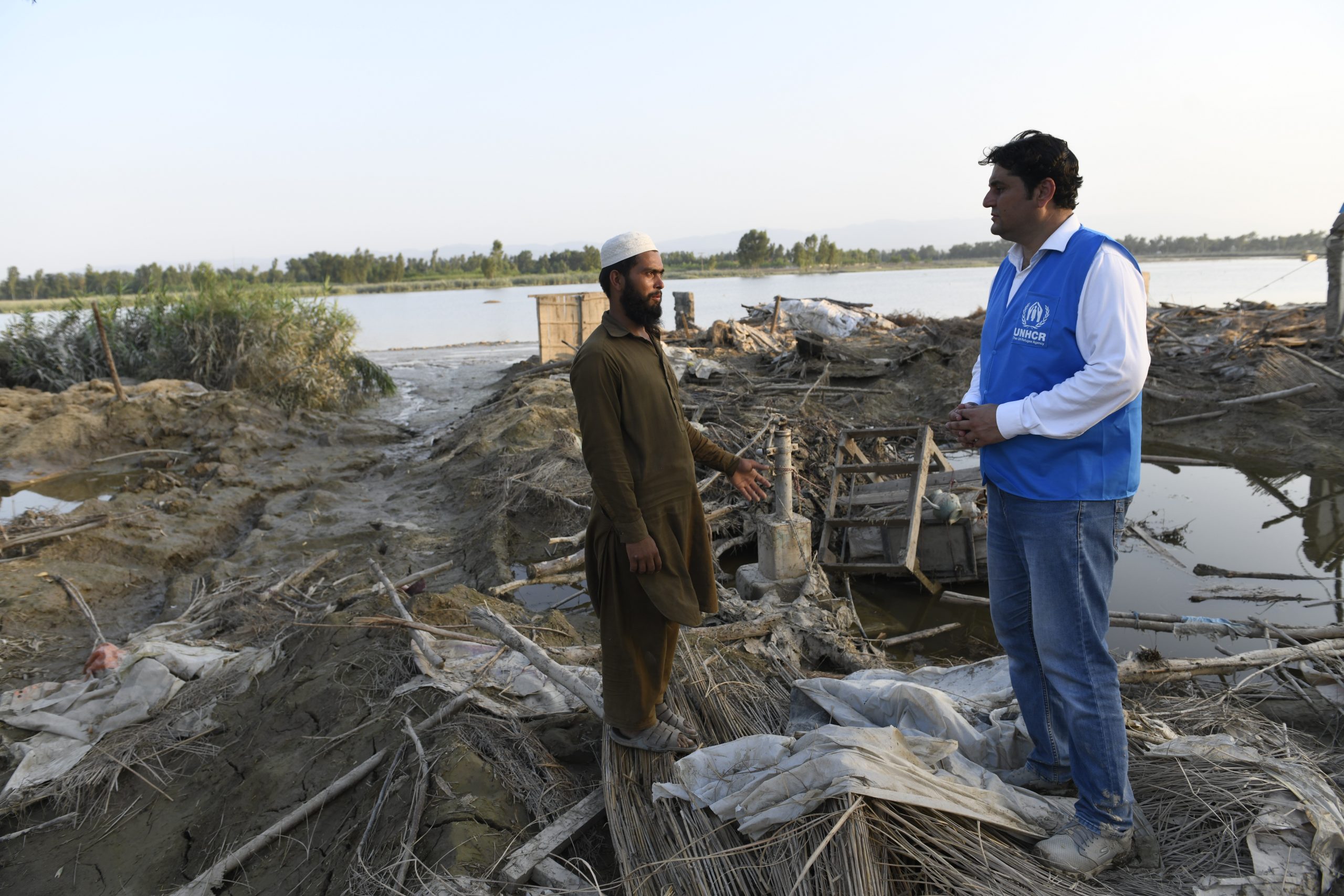Saleem Khan, 25, a farmer and host community member in Khyber Pakhtunkhwa Province, shows where his house stood before it was washed away.
More than 6.4 million people in Pakistan are in need of immediate humanitarian support because of the devasting flooding and landslides that have hit the country. Some 33 million people have been affected by the torrential monsoon rains and flooding, which have killed more than 1,100 people, injured nearly 1,600 people and brought devastation not seen in decades.
UNHCR, the UN Refugee Agency, is already on the ground in Pakistan distributing life-saving support to the many people affected by the flooding. The Novo Nordisk Foundation is supporting UNHCR’s emergency response in the country through a grant of 1 million DKK.
“UNHCR is providing a large-scale response in Pakistan to support the many people affected by the flooding. With this donation we want to support their life-saving efforts, which are helping tens of thousands of people who are in desperate need of humanitarian assistance and protection,” says Hanna Line Jakobsen, Senior Vice President, Novo Nordisk Foundation.
In the provinces of Balochistan and Khyber Paktunkhwa, which are both badly hit by the flooding and also house the majority of the 1.3 million refugees living in Pakistan, UNHCR is providing relief items to refugees and host communities. Relief is also being rushed to flood hit areas in southern Sindh province. UNHCR plans to assist some 50,000 households in the worst affected areas with over a million relief items.
“We are very grateful in UNHCR that the Novo Nordisk Foundation has once again decided to quickly support our humanitarian response efforts. Our staff in Pakistan report that the scale of devastation in the country is unimaginable and UNHCR experts are working around the clock to distribute relief items to the many desperate people,” says Eva Raabyemagle, Head of Private Sector Partnerships in Denmark.
A UN funding appeal issued jointly with the Government of Pakistan is seeking US$160 million, which will help more than 5 million people in the worst-affected areas to cover the costs of essentials such as shelter, protection and food.









